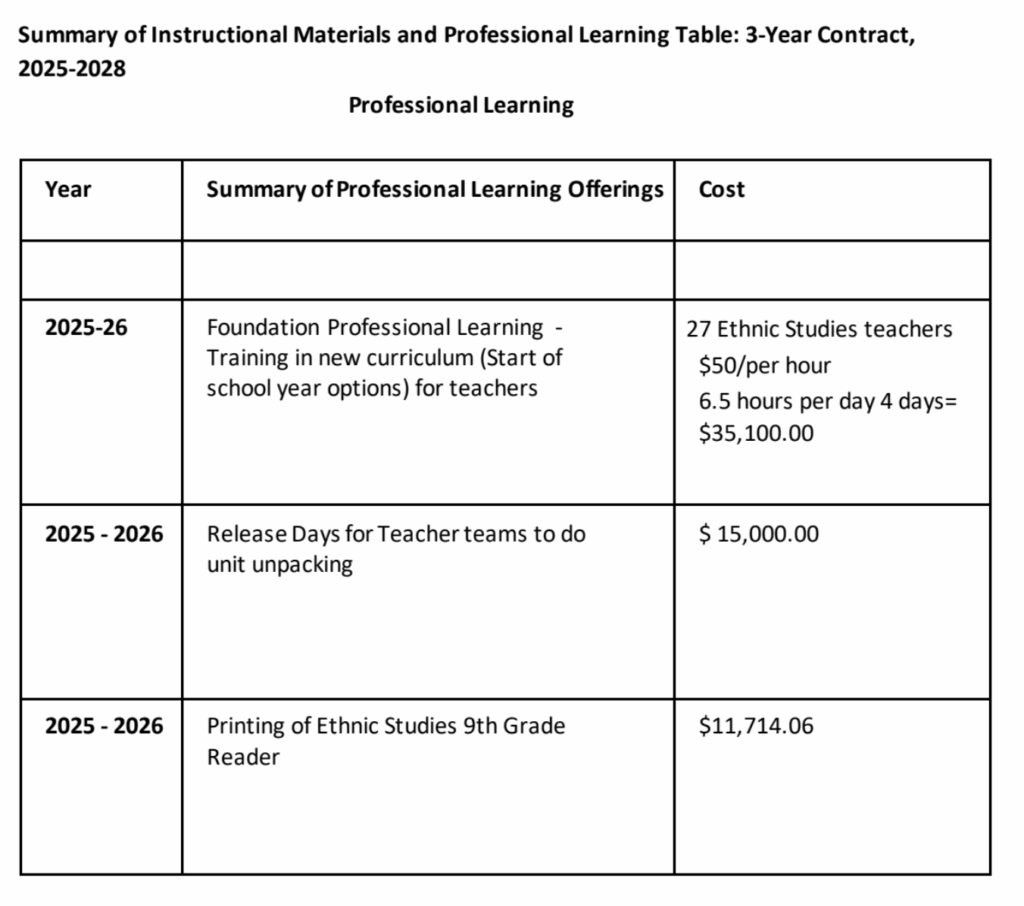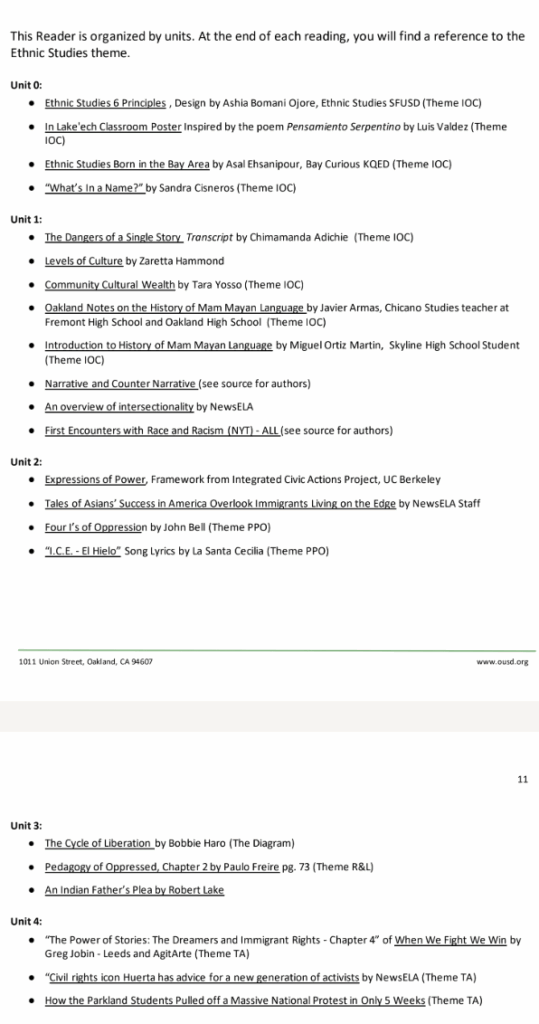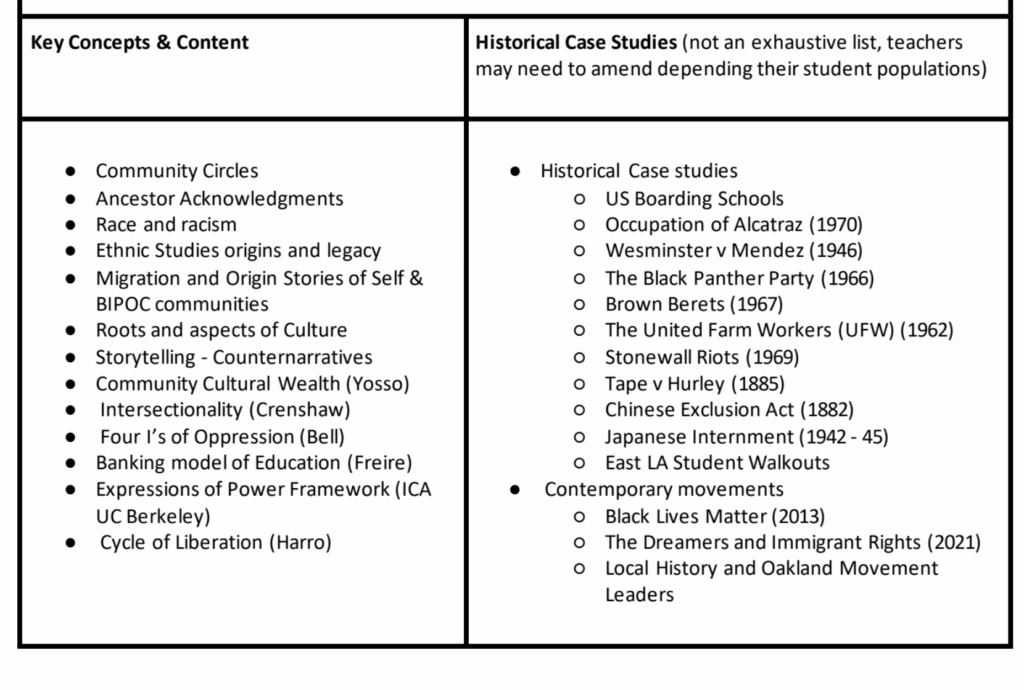
LiberatED: Oakland Unified School District
Incidents
- Issues
- Ethnic Studies
Oakland Unified School District (OUSD) has revised its Ethnic Studies curriculum in collaboration with the UC Berkeley Department of Education. The updated curriculum will be implemented for the 2025–2026 school year, aligning with the statewide requirement that Ethnic Studies become a mandatory course for all California 9th graders as a condition for high school graduation.
This curriculum was not purchased from a vendor, nor is it part of an external professional development (PD) partnership. Instead, it is unique to OUSD—developed by district staff, with PD to be facilitated internally. The total cost for the curriculum and associated professional learning is $61,814.00.
A audit recommended “a focused, equitable, and aligned approach that centers race and racism as core themes.” As part of a three-year contract, 27 Ethnic Studies teachers will be paid $50 per hour.

The district contracted Kyle Beckham of UC Berkeley to audit the OUSD Ethnic Studies curriculum. In his review, Beckham recommended that the content be “connected to students’ lived experiences, maintaining a focus on race while introducing intersectionality in a developmentally appropriate way.”
He also urged OUSD to “provide teachers with sustained support for implementing complex projects like the Taking Action Project, with accessible and centrally managed curriculum materials and regular opportunities for revision based on feedback.” Additionally, he emphasized that “the curriculum should be designed with long-term integration in mind, laying a strong foundation for future coursework and interdisciplinary learning across the district.”
The curriculum also includes a land acknowledgment.

Ethnic Studies OUSD Vision Statement: “Ethnic Studies in OUSD is committed to supporting the critical consciousness, self-determination, agency, and humanization of all people” by: honoring histories and cultures of racially marginalized groups, employing multiple disciplines and perspectives to critically analyze systems of oppression, promoting action in solidarity, and positively transform students’ lives and communities.

The reading list includes materials authored by activists, among them Marxists and proponents of Critical Race Theory. One noteworthy example is “Community Cultural Wealth” by Tara Yosso, which discusses “Whose culture has capital? A critical race theory discussion of community cultural wealth, Race Ethnicity and Education.”

The syllabus prominently promotes “critical consciousness,” which involves analyzing “oppressive systems which fosters a sense of agency” and states that “students will engage with multiple disciplines, diverse perspectives, and interactive projects to deepen their understanding of systems and their own agency.”
Course themes include: 1. Identity, Origins, and Culture; 2. Power, Privilege and Oppression; 3. Resistance and Liberation; and 4. Taking Action for Change.
Key concepts include: race, racism, intersectionality, the “Four I’s of Oppression,” and Paulo Freire’s “Banking model of education,” as well as historical case studies about Black Lives Matter and the Black Panther Party.

Stay Informed
